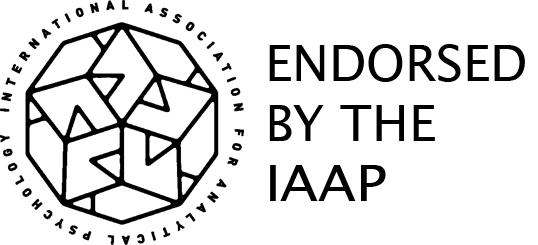
Date
- Feb 22 2025
- Expired!
Time
UTC- 4:00 pm - 6:00 pm
Local Time
- Timezone: America/New_York
- Date: Feb 22 2025
- Time: 11:00 am - 1:00 pm
Cost
- £95.00
Location
Organiser

Society of Analytical Psychology
Website
https://jungian.directory/iaap-organisations/sap/Updated 03 Sept 2021. Jungian Trauma part 3 (2022)
Reclaiming the ‘gravamen’ – And it’s not typology! With Dr Steve Myers
Over two Saturdays, The Journal of Analytical Psychology is offering an online two-part workshop: Saturday 22nd February and 1st March, 2025
Soon after Jung published Psychologische Typen in 1921, it became increasingly apparent to him that most readers were misunderstanding the book and missing his most important message. In 1923, when H. G. Baynes—in collaboration with Jung—translated the book into English, he added the subtitle of ‘or, the Psychology of Individuation’ to point to the gravamen of the book. In the 1925 seminars, Jung recognised that people were misunderstanding his philosophy (introduced in Chapter II) and tried to explain it. In 1934, he directed readers to Chapters II and V (rather than the types in Chapter X) as containing the essence of the book. He repeatedly complained about misreadings but, as a result of his pleas being ignored, Jung eventually decided not to bother with a revision of the text, as he had done with other works. And Jung continued his protestations right up to the end of his life, when he refused to help a PhD student by providing comments on the latter’s MBTI research because that was not the purpose of Jung’s book.
Session format
This series—consisting of a pre-sessional video and a pair of two-hour presentation-and-discussion sessions—will examine this divergence between Jung’s theory and popular interpretation, and consider how Jung’s gravamen can be reclaimed in the 21st century. The series will consist of:
- Watching a pre-sessional video at https://myers.co/psychologicaltypes that:
- introduces Jung’s book;
- describes the differences between the psychological types using art;
- examines the divergence between Jung’s intentions and popular reading;
- describes the core of the book which, in Jung’s later career, he illustrated using the metaphor of alchemy.
- The first two-hour, online Zoom session will include:
- discussion of the issues raised by the video;
- introduction to Jung’s concern about the existential threats to humanity posed by nuclear weapons, the support for that concern provided by astronomy, and how the Pauli-Jung conjecture informs that debate;
- examination of Jung’s philosophy which is still misinterpreted today; this will focus on Chapter I which Jung did not point to in the Argentine Foreword, but Steve will demonstrate is a fundamental part of the gravamen of the book;
- consider the role of the transcendent function in Psychological Types, and how it relates to the axiom of Maria, by considering the writings of Jung, von Franz, Jeffrey Miller (author of The Transcendent Function), and Steve’s own PhD research into the relationship between the transcendent function, mythology, and religious tolerance/conflict.
- The second two-hour session will look at natural expressions of the transcendent function (and its absences), including:
- the Northern Ireland peace process;
- the transition from Rhodesia to Zimbabwe under Robert Mugabe’s leadership;
- the transition from apartheid to the rainbow nation in South Africa;
- making use of film examples to demonstrate the natural expression of the transcendent function in the life of Nelson Mandela;
- a discussion to consider the importance of Jung’s gravamen to the future of humanity and how that gravamen can be recovered not only in the contemporary use of typology but also in wider public awareness.
The event is finished.
Related Events



